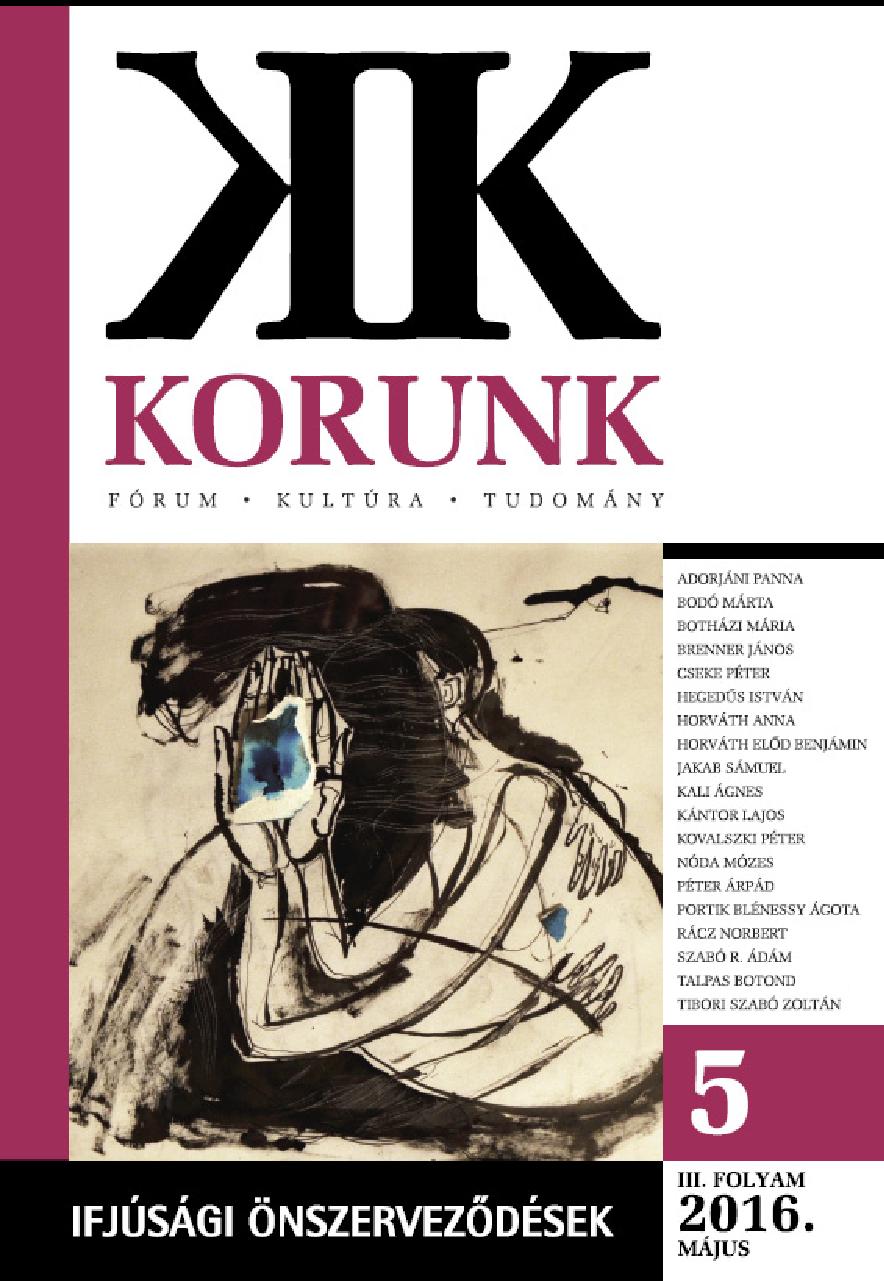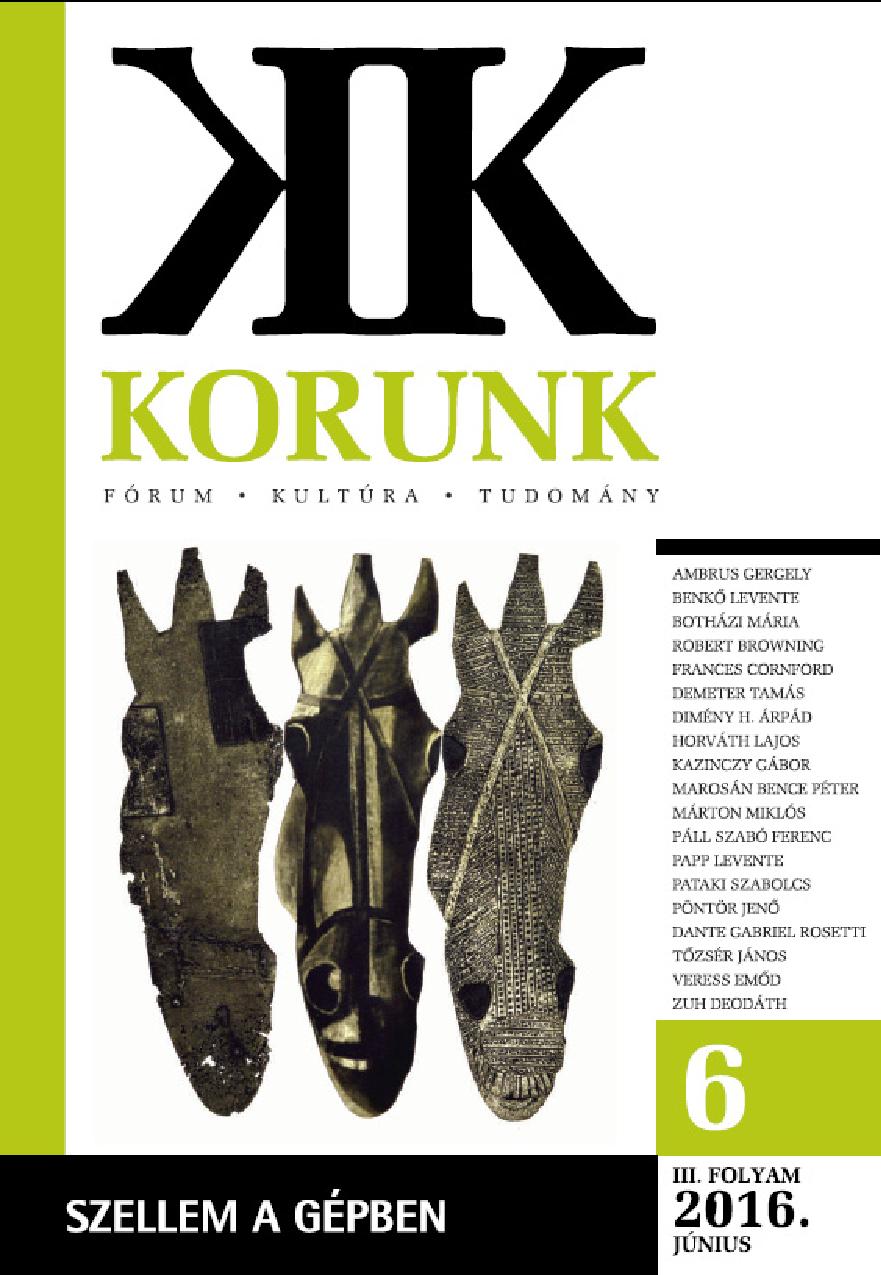








Keywords: youth movements; student organisations; confessional or religious affiliation; responsibility
The youth organisations of Transylvania started either as student organisations,themselves a compulsory extracurricular form of education, or from the confessional or religious affiliation of students. Three important periods can be distinguished in their functioning. The first period is marked by the work on the structures and plans with visions on how to move further. As a response to the need of the youth to belong to a group, several groups have been organised, and a new wave of possibilities appeared with the applications for programs. The other open possibility was that Romania entered the EU. This move takes us to the second period, when due to the applications and capitalism, the work of the youth movements has become competitive. Some of the youth organisations disappeared in this race. In the third period the communication between the organizations has markedly increased. Thus, the youth has opportunity to belong somewhere where they feel in safe, the freedom of acting and thinking, but simultaneously also the responsibility for its future.
More...

Keywords: Gilbert Ryle; René Descartes; “ghost in the machine”; analytical philosophy; philosophy of mind; 4e approaches
The paper addresses Ryle’s famous critique of Cartesian theories of mind, according to which the mind is a “ghost in a machine”, and mental processes are to be understood as “para-mechanical”, and investigates whether and to what extent this characterization may also be accurate for later accounts of mental phenomena in analytical philosophy. It presents a large-scale overview of the development of analytical philosophy of mind from the mid-20th century until today, including diverse versions of materalism (reductive and non-reductive), functionalism and the cognitivist paradigm, the so-called separationist view of the mind and its criticism based on representationalism about phenomenal content, phenomenal intentionality and cognitive phenomenology, and also the latest alternatives to classical cognitivism, i.e. the socalled 4e approaches (embodied, extended, enacted and embedded theories of mind). The paper considers in some detail whether these accounts may be charged with (still) presenting the mind as being a ghostin the material world, and argues thatin different ways and to a different extent this characterization is still applicable, by showing that the first personal aspects of the mind and mental phenomena cannot be easily explained or explained away, neither by the classical naturalist theories, nor by their new alternatives. Hence, the conclusion is that the ghost is still with us, even if naturalized.
More...




Keywords: analytical philosophy; philosophy of mind; mental fictionalism; psychological ascriptions
More...


Keywords: phenomenal states; intentionality; representations; functional states; naturalism; the easy and the hard problems of consciousness
n this study I give a very brief overview of the general theory of functionalism and a particular interpretation of it, which is related to the views of David Chalmers. I consider some of the main objections to functionalism, and then I focus on one of them, namely the critique according to which functionalism leaves out from its account the subjective, qualitative, phenomenal side of the mind. Interestingly enough, Chalmers agrees on this point about this weakness of functionalism, although he still accepts it, thinking that, although this theory cannot be the whole story about the mind, it can quite successfully account for the so-called functional or psychological mind, which can be investigated independently of its phenomenal aspect.
More...

Keywords: David Lewis; mind-body problem; phenomenal consciousness; physicalism; dualism; behaviourism; type identity theory; functionalism; non-reductive materialism
It was 50 years ago that David Lewis published his paper entitled “An Argument for Identity Theory”. His paper has been one of the most influential works in the area of the philosophy of mind. You can like it or not, but it is certain that Lewis’ paper determines the way of our thinking about the mind-body problem and the nature of consciousness. Our paper consists of three parts. In the first part,we outline the climate of philosophy of mind in the first half of 1960s. In the second one, we reconstruct the argument presented by Lewis. And finally, in the third part, we analyze the very effect of his paper on our contemporary notions of the mind.
More...